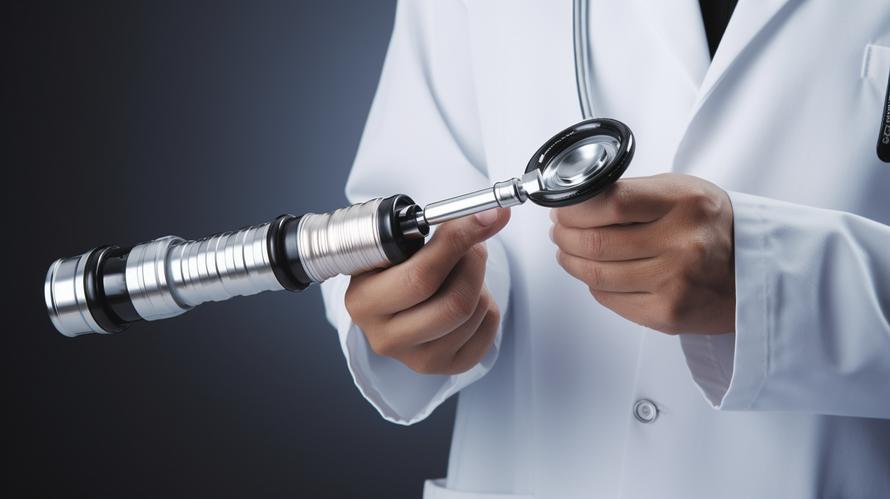If you’ve ever had a colonoscopy, you know it’s not a pleasant experience. The laxatives, the discomfort, the sedation, and the hours spent feeling groggy afterward – it’s not something anyone looks forward to. But here’s the kicker: if you didn’t prepare properly for the procedure, it may have been a complete waste of time.
Researchers from Washington University School of Medicine in St. Louis discovered that one out of three colonoscopies might be worthless due to insufficient colon-emptying by the patient. This lack of preparation can lead to pre-cancerous lesions going undetected during the procedure. So, let’s dive a little deeper into what this means and how you can make sure your colonoscopy is as effective as possible.
Why proper preparation is essential
The whole point of a colonoscopy is for doctors to get a clear view of your colon’s walls to identify any cancerous or pre-cancerous growths. If your colon hasn’t been completely emptied, these growths can be hidden, significantly reducing the effectiveness of the procedure.
Senior author Dr. Jean S. Wang explains, “In order to see polyps or cancers, we really have to be able to clearly see the entire wall of the colon.” The study found that about one-third of patients didn’t adequately prepare for their colonoscopy, directly impacting their results.
This is particularly concerning because missing a pre-cancerous growth during a colonoscopy could mean that it turns malignant before your next scheduled colonoscopy. Researcher Reena Chokshi, M.D., emphasizes that it’s possible for a missed lesion to develop into cancer, especially if your next colonoscopy isn’t for another decade.
Prepping the right way
To ensure the most accurate results from your colonoscopy, it’s essential to follow your doctor’s preparation instructions explicitly. Don’t cut corners – the better prepared you are, the more likely it is that your doctor will spot any potentially dangerous growths.
Here are some general tips on how to prepare for your colonoscopy, but remember that your doctor’s specific advice should always take precedence:
- Understand the timeline: Colonoscopy preparation usually starts a week before the procedure. Familiarize yourself with the steps and ensure you’re giving yourself enough time to complete them all.
-
Adjust your diet: In the days leading up to your colonoscopy, start eating a low-fiber diet. This means cutting out whole grains, raw fruits and veggies, seeds, and nuts. By doing so, you’ll make it easier for your colon to empty out during the preparation process.
-
Prepare for the laxatives: Most doctors will prescribe a strong laxative that you’ll need to take the day before the procedure. Ensure you have access to a bathroom because you’ll likely be using it often. It’s also helpful to have plenty of water and clear liquids on hand (like broth and sports drinks) to stay hydrated.
-
Follow through with the laxatives: The laxative part of the preparation process is the most crucial step. Skipping or underestimating this part will only make it more challenging for your doctor to get a clear view during your colonoscopy. Be sure to take the full dose of laxative and follow any additional instructions your doctor has provided.
-
Rest and recover: After your colonoscopy, give yourself time to bounce back. Spend the day resting and make sure to wait 24 hours before taking a shower.
An easier option on the horizon?
While getting a colonoscopy isn’t anyone’s idea of a good time, it’s a vitally important health screening for adults. According to the American Cancer Society, colonoscopies can help reduce the risk of dying from colorectal cancer by up to 60%.
To make the process more manageable, some researchers are developing a more user-friendly at-home test called Cologuard, which can detect cancerous and pre-cancerous growths by analyzing a stool sample. While it might not be as accurate as an in-person colonoscopy, it could provide an alternative for those unable or unwilling to go through the full colonoscopy process. It’s worth asking your doctor about Cologuard and other new screening options that might be available.
The bottom line
Colonoscopies, while uncomfortable and time-consuming, are crucial for detecting colorectal cancer and saving lives. To make the most of this vital health check, it’s essential to prepare thoroughly for your colonoscopy by following your doctor’s instructions. Don’t let a lack of preparation render your colonoscopy worthless – be diligent in your efforts, and you’ll significantly increase the chance of catching any potentially dangerous growths.



